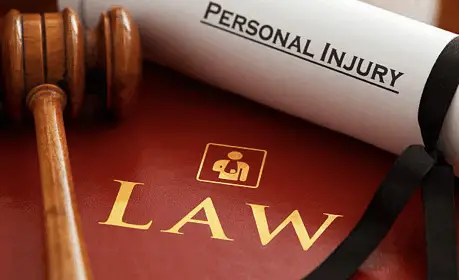Expert witnesses are professionals who use their special knowledge to explain complicated details in personal injury cases. They assist the court in understanding complex topics, such as medical conditions, accident mechanics, or the long-term costs of an injury. Without them, many cases would be missing the clear evidence needed to win.
Expert witnesses are trained and acknowledged in their fields, presenting facts necessary for the judge or jury to understand the truth behind the claims. In fact, hiring the right personal injury expert witness can change the entire direction of a case. Their job is to connect the dots between what happened, how it caused harm, and what the real impact will be for the injured person, both now and in the future.
Role of Expert Witness in Personal Injury Cases
Personal injury cases often involve technical details. For instance, an accident may involve complicated physics to explain how cars collided. A slip and fall case may involve building codes or safety standards. Medical issues may involve treatment plans, recovery timelines, and permanent effects on health.
Judges and juries are not specialists in these subjects. Expert witnesses step in to explain these details in simple terms. Their testimony can prove whether the defendant was at fault, how severe the injury is, and the amount of compensation that should be paid as damages.
They are especially important when the other side tries to downplay injuries or argue that the accident was not the real cause of the damage.
Types of Expert Witnesses That Are Common in PI Cases
There is more than one type of expert witness. Different cases require various specialties. Below are the most common categories:
Medical Experts
These are doctors, surgeons, or therapists who explain the nature of the injury. They provide assistance on diagnosis, treatment, recovery time, and long-term health effects. They also help in estimating the costs of future care, surgeries, or therapies.
For example, an orthopedic surgeon may testify about broken bones and the need for surgery, while a psychologist may discuss post-traumatic stress after an accident.
Accident Reconstruction Experts
These experts use science, physics, and evidence from the scene to recreate how an accident happened. They analyze details such as skid marks, vehicle damage, or surveillance footage. Their statements provide evidence regarding who was responsible for the accident and how it occurred.
Economic Experts
These specialists calculate financial losses. They review lost wages, future earning capacity, and even inflation rates. Their role is to demonstrate the lifelong financial impact of the injury on the victim.
They make sure that compensation isn’t just about today’s bills but also about future losses.
Life Care Planners
These experts plan out the future needs of an injured person. They detail every part of ongoing care, from medical treatments to home modifications. Their reports are crucial when the injury is severe or permanent.
Vocational Experts
Vocational experts analyze how injuries impact an individual’s ability to work. They evaluate one’s skills, work history, and potential career opportunities.
For example, if a construction worker can no longer lift heavy materials, the vocational expert explains how that limits future job opportunities and earning potential.
Other Specialized Experts
In various cases, numerous types of experts may be involved. Biomechanical engineers might analyze how forces affect the body, while psychiatrists may provide testimony regarding mental health conditions.
Engineers can evaluate unsafe structures in slip-and-fall incidents, and product safety experts can demonstrate how a defective product caused harm. Each of these professionals offers valuable, specialized insights.
How Do Lawyers Choose the Right Expert Witness?
Not every professional qualifies as a strong expert witness. Lawyers carefully select experts based on several factors:
- Education and certifications in their field.
- Years of practical experience.
- A history of reliable and unbiased testimony.
- The ability to explain ideas clearly to a non-expert audience.
Attorneys also consider whether the expert has testified successfully in past cases. The right choice can make testimony more persuasive and harder to challenge.
Do Expert Witnesses Only Matter at Trial?
Expert witnesses are often utilized much earlier in the process, well before a trial begins. Their reports can be used in settlement negotiations with insurance companies. A strong expert report can push the other side to offer fair compensation without going to court.
However, if a settlement is not possible, the expert’s testimony at trial becomes essential. In both situations, their work plays a major role in the outcome.
Key Takeaways
- Expert witnesses use specialized knowledge to explain complex issues in personal injury cases.
- An expert witness can help prove liability, damages, and long-term effects.
- The different types of experts include medical professionals, accident reconstruction specialists, economic analysts, vocational counselors, and life care planners.
- They establish the link between the accident and the injury, and they calculate both current and future losses.
- Choosing the right expert and preparing them well is crucial to building a strong case.
- Expert witnesses are often the key to securing fair and accurate compensation.

